
Over 70% of children and young people with long COVID reported improvements in their symptoms within 24 months of their initial positive SARS-CoV-2 test.

Over 70% of children and young people with long COVID reported improvements in their symptoms within 24 months of their initial positive SARS-CoV-2 test.

Although each of the product samples of phenibut contained the actual active ingredient, the exact amount of the active ingredient was inaccurate and, in one sample, found to be at a higher dose.

The model, Deep-IO, shows improved specificity and sensitivity compared with existing predictive biomarkers.

The regulatory decision marks a significant step forward in the treatment of non-tuberculous mycobacteria infections.

Treatment options may include treating the anemia with blood transfusions, androgen therapy, thalidomide, and other medications.

Tislelizumab is approved in combination with platinum and fluoropyrimidine-based chemotherapy as first-line treatment of unresectable or metastatic HER2-negative tumors.

Pharmacists can educate patients on controlling risk factors and stay up-to-date on emerging therapies like SGLT2 inhibitors and finerenone that can slow disease progression.
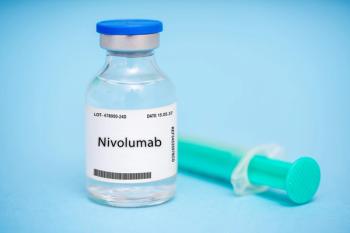
The approval offers patients with solid tumors an alternative to intravenous PD-1 inhibitor administration.


Lp(a) is a critical risk factor for atherosclerotic cardiovascular disease, but current lipid-lowering therapies are largely ineffective at lowering Lp(a) levels.

Female adolescents were at an increased risk of experiencing depression and anxiety symptoms compared with males.

Administering first-dose antibiotics to septic shock patients via IV push rather than continuous infusion could improve the speed of antibiotic delivery and reduce logistical challenges.
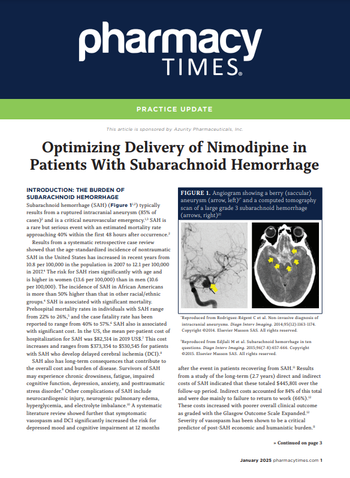
This article is sponsored by Azurity Pharmaceuticals, Inc.

Some outsourcers and pharmacies have capitalized on the shortages, producing compounded versions.

The potential treatments include ivermectin, methylene blue, glucagon-like peptide-1 receptor agonists, and low-dose naltrexone.
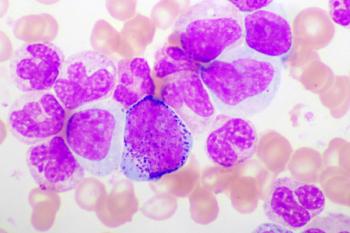
Constantine Tam, MD, discusses zanubrutinib's efficacy in CLL/SLL, emphasizing its durability, high response rates, safety considerations, and evolving therapeutic potential in combination with other agents.

Adding HIV/AIDS to core chronic diseases is a key change.

Bispecific antibodies amivantamab and tarlatamab hold promise for patients.

The disparity highlights opportunities for pharmacists to get involved and address health disparities.

Plaintiff argues that "blacklisting” certain individuals with opioid prescriptions was unlawful.
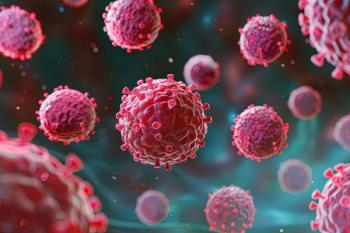
Anthony Perissinotti, PharmD, BCOP, discusses unmet needs and trends in managing chronic lymphocytic leukemia.
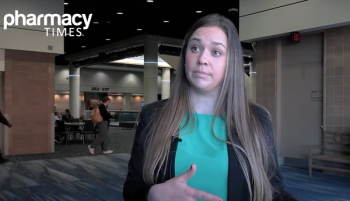
Pharmacists are crucial in educating patients, identifying eligible individuals, and promoting uptake of the newly expanded RSV vaccination recommendations for older adults.

Study results show that the updated BNT162b2 XBB vaccine is effective in preventing hospitalizations or emergency department visits associated with COVID-19 complications.

Muvalaplin is an oral, small molecule inhibitor that can reduce lipoprotein(a).

Individuals who refused a pneumococcal vaccine were associated with low collective responsibility and confidence in vaccine efficacy and safety.

The program develops patient-centered oncology pharmacists through comprehensive training.

Federal legislation would seek to foster development of antibiotics.

High levels of the Oscillibacter genus of bacteria were associated with reduced cholesterol.

Yi Lin, MD, PhD, highlights the importance of achieving MRD negativity in multiple myeloma, CAR T-cell therapy outcomes, and the critical role of pharmacists in patient care.
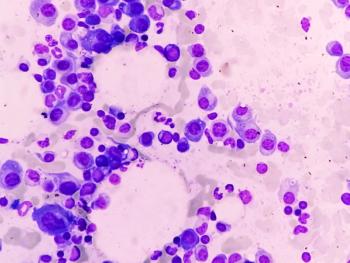
Here is an updated overview of the role of BCMA-directed therapies following the 2024 ASCO Annual Meeting and EHA Congress.